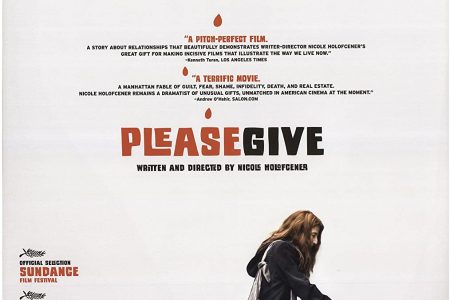Another Year is a wonderfully crafted, wonderfully acted, compassionate and moving film from Mike Leigh in which very little actually happens, there are stretches where there is hardly any dialogue and the central characters are a happily married middle-aged couple. I’m amazed the film was made in the first place, based on that summary.
Jim Broadbent and Ruth Sheen are Tom and Gerri (yes, they are used to the joke but it’s only mentioned once), a geologist and a counsellor who enjoy each other and their life, devoting a lot of their time at their allotment. They have a son who is unmarried, but he seems fine, and they have friends they see in their pleasant house in a pleasant neighbourhood. It’s very unusual to see a happy couple as the centre of a film, so it’s nice to see it represented, but it means that drama has to be found elsewhere. This is seen via their friends: Mary (Lesley Manville), a co-worker of Gerri, is a lonely divorcee who drinks a little too much, and Ken (Peter Wight) is Tom’s old mate who works in a dead-end job and is lonely and drinks too much.
The story takes place over the four seasons as the various people interact with Tom and Gerri at various social occasions. These are mostly gentle scenes with small talk and the sort of uncomfortable pauses that happen in real life rather than the sort of dialogue that tends to happen in film – there is a sense of reality and depth, both in the situations and the characters, allowing us to invest ourselves in the moments and really feel what is going on. For the most part, there is none of the histrionics of cinema dramas – the huge shocks occur in the way that Broadbent gives a look to his wife, or the way that Sheen changes the tone of her voice with Mary after she says some things about the family that Sheen doesn’t like (although the winter section is about the death of the wife of Tom’s brother, played by David Bradley, who is a quiet and ghostly figure, which is more obviously emotional).
However, the powerful drama is centred on Mary, as she loses it while getting more drunk – Manville is fantastic in this role, completely believable as she turns spiteful and pitiful. The rest of the cast is fabulous as well – Broadbent and Sheen are perfect as the couple, and Wight is a wreck as a desperate and lonely old man with nothing in his life, and Imelda Staunton is great in a brief cameo as a patient of Gerri – but it is Manville who shines. It is a testament to the method in which Leigh works with his cast (who work with him many times over – Broadbent, Sheen, Manville, Staunton, Phil Davis were all in Vera Drake, for example), which gets the actors to truly inhabit their characters as they discover the story together with lots of improvisation. It means that the film feels like a genuine slice of life instead of just a film, with Leigh as a forensic examiner of human nature.
[A side note: this film has a Harry Potter Factor of 3: Professors Slughorn and Umbridge, and Filch]
The only problem I have with the film is the subliminal message that marriage is wonderful and that if you are not in a happy relationship, you deserve your pathetic unhappiness. Perhaps I’m reading too much into it, but the misery heaped on Mary and Ken seems excessive compared to the happiness of Tom and Gerri, and for their son when he gets into a relationship with a good woman. Mary comes across as a useless and desperate woman; she lusts after Tom and Gerri’s son, who she has known since he was a young boy; she buys a dodgy car which breaks down a lot and she can’t drive or park it properly; she is nasty when she first meets the new girlfriend of the son. Ken is a walking cardiac arrest waiting to happen, living only for his visits to Tom and Gerri, leering after Mary just because she is also single, being passed over at work because he is so useless. It seemed so heavy-handed when the rest of the film is so subtle and light and positive and showing such a happy couple. But that is the only issue I have with an otherwise excellent film.
Rating: DAVE




